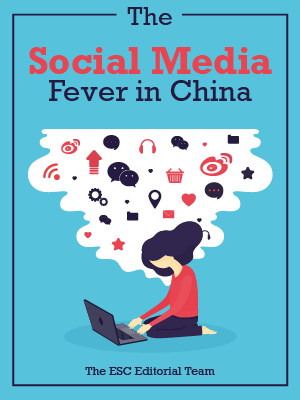Ecommercestrategychina.com uses cookies and other technologies to provide you a better browsing experience. You can get more information regarding the use of cookies, or decline it whenever by clicking Privacy Policy. By using this site or clicking “Okay”, you give us the consent to the use of cookies.
OKAY
The deeper integration of traditional economies and internet is still under way, but so far, it has been giving birth to considerable exciting technological innovation in various areas, in particular, the sharing economy.
It is estimated that the market volume of the sharing economy in China had reached more than RMB2.4 trillion by 2016, which had doubled in just one year. And the cumulative number of registered users in different kinds of sharing economy has been more than 3.1 billion with participants totaling more than 500 million. Besides, there are nearly 300,000 employees working for start-ups of the sharing economy and about 100 million individual service providers currently on internet platforms.
What’s the driving force behind the dramatic growth of this emerging power? I think there are two important factors.
The first one is the in-depth combination of mobile internet and traditional economies. The core spirit and mission of the Internet is sharing. So “Internet +”, a mode that is being more and more mentioned, means to share the resources from the Internet world with traditional economies. The sharing economy will transform the relationship between labour and productivity, reorganise the way resources are distributed and eventually lead to industrial development.
Another impetus is the government’s demand, which is an absolutely great advantage for enterprises in China. Xi Jinping, President of China, spoke in the opening ceremony of World Internet Conference on December 16th 2015, that the “Internet +” Project had been in progress in China and that the country was taking a further step in digitalisation and innovation on the internet.
New Opportunities for Traditional Economies
The sharing economy, a burgeoning economy with strong vitality, is likely to influence individuals first and then extend to enterprise, government, city and the whole society. Now is the time for the transitional phase from personal sharing to enterprises sharing and government services sharing, and the on-going evolution is creating great opportunities.
Enterprises are utilising the sharing economy to explore more possibilities for traditional sectors. Take the bicycle industry as an example. The innovative “shared bike”, serving as a complement to public transportation, has not only solved traffic problems but also facilitated green travel and benefited the environment.
Manufacturers are also expected to reap the reward of the sharing economy. Sany Heavy Industry Group, a Chinese multinational heavy machinery manufacturing company and also one of the largest heavy equipment manufacturers in the world, is managing more than 300,000 heavy machinery equipments through an intelligent platform, on which, owners are able to rent their equipments and seek market services such as maintenance and spare parts procurement. The practice has significantly reduced operational cost and improved the management efficiency.
New Challenges for Traditional Regulation
The booming development of the sharing economy is presenting a problem that calls for the attention of the whole society, namely what criteria such innovation needs to comply with? Since innovation in the sharing economy is closely connected with public service, it will inevitably hit the traditional regulation or policy in the future. The new developments have overturned traditional business models in terms of scale, cost and method, and are now posing new challenges.
Please Login to add comments.

$9.99 $19.98

$9.99 $19.98
By VetallaMart June 2nd, 2018
The bicycle sharing is very nice. Is the Chinese DiDi another kind of transportation sharing business? The car owners share car with passengers by driving them to the places and get paid.
By GRLpGpAG February 18th, 2025
555
By GRLpGpAG February 18th, 2025
1lBpSXnLYO
By GRLpGpAG February 18th, 2025
response.write(9872019*9994757)
By GRLpGpAG February 18th, 2025
'+response.write(9872019*9994757)+'
By GRLpGpAG February 18th, 2025
"+response.write(9872019*9994757)+"
By GRLpGpAG February 18th, 2025
echo urrlmj$()\ wqnxyg\nz^xyu||a #' &echo urrlmj$()\ wqnxyg\nz^xyu||a #|" &echo urrlmj$()\ wqnxyg\nz^xyu||a #
By GRLpGpAG February 18th, 2025
&echo bbwdno$()\ nnrdxm\nz^xyu||a #' &echo bbwdno$()\ nnrdxm\nz^xyu||a #|" &echo bbwdno$()\ nnrdxm\nz^xyu||a #
By GRLpGpAG February 18th, 2025
555&echo jmhuys$()\ hkoddw\nz^xyu||a #' &echo jmhuys$()\ hkoddw\nz^xyu||a #|" &echo jmhuys$()\ hkoddw\nz^xyu||a #
By GRLpGpAG February 18th, 2025
555 bcc:009247.541-61981.541.6a867.20137.2@bxss.me